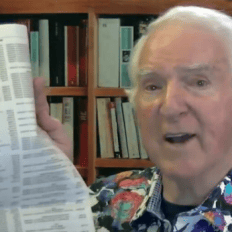You can make big profits investing in Georgia’s tax defaulted property auctions, but you first have to understand the process. Georgia law does set some basic guidelines, but every property tax collecting agency in the state has its own rules.
Is it good to invest in Georgia real estate at tax delinquent property auctions? Yes, the profits can be lucrative, and it doesn’t take a lot of money to get started since tax defaulted property is sold for pennies on the dollar. If you’re interested in investing in Georgia and finding affordable investments, you’re in the right place.
Table of Contents:
- Invest in Georgia Real Estate at Tax Defaulted Property Auctions
- County Rules for Tax Lien Investing in Georgia
- Where to Invest Money In Georgia: Finding Tax Defaulted Auctions
- Investing in Georgia Tax Defaulted Property Auctions is Fair and Legal
- Conclusion
Invest in Georgia Real Estate at Tax Defaulted Property Auctions
Investing in Georgia is a little different because Georgia is a “redeemable tax deed” state. This is also referred to as a hybrid tax certificate.
 When investing in Georgia – the Peach State, you attend the tax-defaulted property auctions and bid on properties. The winner has 12 months from the date of the auction to collect the past due taxes and fees plus 20 percent penalty, before the winning bidder can take possession of the property. If the owner pays this, that is called redeeming the property.
When investing in Georgia – the Peach State, you attend the tax-defaulted property auctions and bid on properties. The winner has 12 months from the date of the auction to collect the past due taxes and fees plus 20 percent penalty, before the winning bidder can take possession of the property. If the owner pays this, that is called redeeming the property.
Under Georgia state law, this tax deed with a right of redemption does not give you rights to the property. You only get the right to try to collect the past due taxes. If the owner does not pay, you can own the property.
State law allows you to file for foreclosure to get possession of the property after 12 months. The Fulton County Tax office explains the process briefly.
If you do need to foreclose on the property you bought in a tax defaulted property auction in Georgia, I suggest you consult a real estate attorney. State law requires you to run a foreclosure notice in the local newspaper at least four times. Hiring an attorney to help is a minor expense. The attorney will make sure it is done right.
More than 95 percent of property sold in tax defaulted property auctions are redeemed.
For instance, the 2016 City of Ashburn tax defaulted property auction saw property owners redeeming their homes the same day the auction was held. That is earning 20 percent on your money in just a few hours. Some homeowners waited and few property owners will never redeem their real estate.
County Rules for Tax Lien Investing in Georgia
 The tax collecting departments in each county hold tax defaulted property auctions.
The tax collecting departments in each county hold tax defaulted property auctions.
In Georgia, property taxes are collected by the county government, cities within that county and school districts. This is important because each one of these agencies may have its own tax defaulted property auction process. You must do your homework and know the local rules.
Here is an example from Turner County in Southwest Georgia. The Turner County Tax Commissioner’s website says, “The Tax Commissioner is an elected Constitutional Officer responsible for every phase of collecting property taxes, from preparation of the digest, billing, accounting and disbursements.
Property taxes include those assessed on real estate, public utilities and ad valorem taxes on motor vehicles and mobile homes. These collections are disbursed to state, county, school and city governing authorities.”
This makes it appear that the County Tax Commissioner bills and collects for the county, the board of education and the three cities. It does not. The Tax Commissioner collects property taxes for county commission and, by special agreement, the board of education. Each city levies and collects its own property taxes.
The rules are different in each county. That’s why you have to do your homework when investing in Georgia.
What this means to you is, a tax defaulted property auction held by the City of Ashburn covers only property taxes for the city. It does not cover the county’s taxes. At the same time, a county tax defaulted property auction only covers taxes owed the county.
If you invest in an Ashburn auction, then you must check with the Turner County tax commissioner to find out about past-due county property taxes. If the property has past-due county taxes, you must pay those as well. Turner County has three cities, Ashburn, Sycamore and Rebecca. Each has its own rules for tax defaulted property auctions.
If you invest in a Turner County tax defaulted property auction and the house is in one of the three cities, you have to check with that city hall to see about city taxes. If the property has past-due city taxes, you have to pay those off. This protects your investment.
Fortunately for you, these other taxes can be added to what the owner has to pay you. You can also collect the 20 percent interest on those taxes.
It is likely the most current property taxes are past due as well. You are not obligated to pay these taxes. However, paying those taxes is a good idea because it will protect your investment. You can’t charge interest on those taxes, but you can be reimbursed.
Where to Invest Money In Georgia: Finding Tax Defaulted Auctions
 State law says Georgia auctions have to be on the first Tuesday of the month. Auctions can be held any month; each tax collecting office decides when to have the auction. The auction will be at the courthouse for the county and city hall for the cities.
State law says Georgia auctions have to be on the first Tuesday of the month. Auctions can be held any month; each tax collecting office decides when to have the auction. The auction will be at the courthouse for the county and city hall for the cities.
You can find the next auction on the county’s website, by contacting the county tax office or by reading the legal notices in local papers, which I explain in the next paragraph. The Department of Revenue can help you find the tax office in each county.
When an auction is announced, Georgia law requires tax defaulted property auctions to be advertised in the local newspaper for four weeks.
You can read the sale notices at the newspaper’s website or at Georgia Public Notice, which publishes all the legal and tax defaulted property notices for every newspaper in the state.
Investing in Georgia Tax Defaulted Property Auctions is Fair and Legal
Tax defaulted property auctions are held because the counties and cities need the tax dollars to operate.
“Local government runs on property taxes. That’s why Georgia law imposes severe penalties for failing to pay them,” says the Georgia Consumer Protection division. “Your obligation to pay property taxes is backed by the property itself. Fail to pay, and the county tax commissioner can sell the real estate to raise the amount due in back taxes. It’s an awesome power, and it takes the form of a lien.”
The United States Supreme Court has repeatedly ruled such auctions are legal. The most recent decision is Jones v. Flowers. “Granting respondents summary judgment, the trial court concluded that Arkansas’ tax sale statute, which sets out the notice procedure used here, complied with due process,” the court ruled.
The public auction is also the fairest way to sell the tax defaulted property. Anyone can participate if they follow the rules.
Conclusion
We hope you enjoyed today’s lesson, “Investing in Georgia’s Tax Defaulted Property Auctions.”
Georgia is a redeemable tax deed state so investing in Georgia is a bit different. In Georgia, you get all of your money back plus 20% if the tax delinquent property owner redeems the deed within the one year redemption period. If the deed is not redeemed, then you get the property.
If you’d like to learn more about tax defaulted real estate, which is sold at public auctions for 10, 20, or cents on the dollar or learn the secrets of tax lien certificates which pay guaranteed returns of 16%, 18%, 24% or even up to 36%, then get started today with this FREE Gift from Ted.
Ted is the only one who provides full support and complete training with home study courses, Q&A webinars, live tutorials, workshops & web classes, and personal one-on-one coaching.

Ted Thomas is America’s Leading Authority on Tax Lien Certificates and Tax Deed Auctions, as well as a publisher and author of more than 30 books. His guidebooks on Real Estate have sold in four corners of the world. He has been teaching people just like you for over 30 years how to buy houses in good neighborhoods for pennies on the dollar. He teaches how to create wealth with minimum risk and easy-to-learn methods.
All reasonable efforts have been made to ensure the accuracy of the information presented in this article. Laws and regulations may change and you must be knowledgeable in the current laws and regulations of any tax defaulted property auctions. Website links may also have changed since this article was written.




